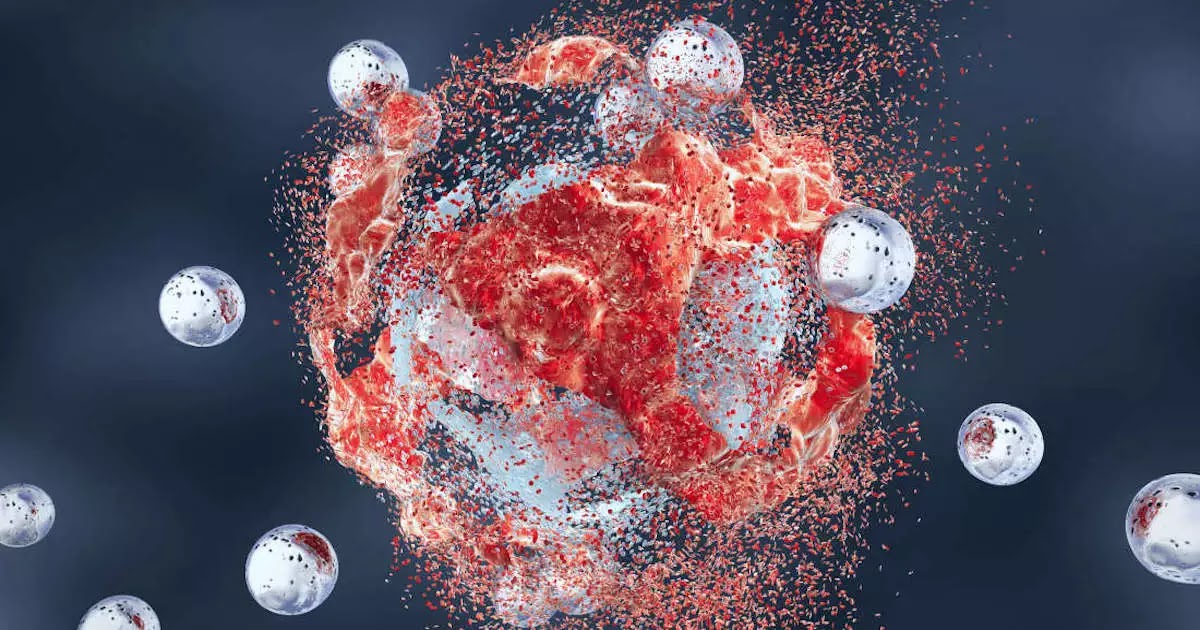
Photo: A 3D illustrator depcting nanoparticles delivering cell suicide-inducing treatment to a tumor cell; Kateryna Kon/Shutterstock
A team of scientists at Northwestern University in the United States has said that they have discovered a self-destruct pathway for cancer cells, suggesting that further investigation could lead to new treatments for the deadly disease.
The eight-year-long investigation looked into the creation of small RNA molecules (siRNAs) that are pivotal for cancer cells to multiply and which ultimately prove fatal to the individual harbouring them. In particular, the investigation looked at the trigger for siRNA molecules and identified the six-nucleotide-long sequences that are behind such activity.
Marcus Peter, who led the research, said in a press release:
"We think this is how multicellular organisms eliminated cancer before the development of the adaptive immune system, which is about 500 million years old. It could be a fail-safe that forces rogue cells to commit suicide. We believe it is active in every cell protecting us from cancer."
However, the team at this point did not know how the body produces these free siRNAs that can trigger this fail-safe. That was until a new study, which showed that the death cycle of cells is controlled by a protein called CD95L.
Marcus Peter said of the new finding:
"Now that we know the kill code, we can trigger the mechanism without having to use chemotherapy and without messing with the genome."
Adding that this new technique would be absolutely deadly to cancer cells and could provide effective new therapies. He says:
"It's like committing suicide by stabbing yourself, shooting yourself and jumping off a building all at the same time. You cannot survive."
Continuing:
"Based on what we have learned in these [past several] studies, we can now design artificial microRNAs that are much more powerful in killing cancer cells than even the ones developed by nature."
Some scientists have now suggested that newly developed nanotechnology could play a key part in new cancer treatments using the knowledge developed by these discoveries. While survival rates from cancer have greatly increased over the last few decades, many types remain extremely deadly, and cancer remains one of the leading causes of death worldwide.
[Based on reporting by: IFL science]















COMMENTS